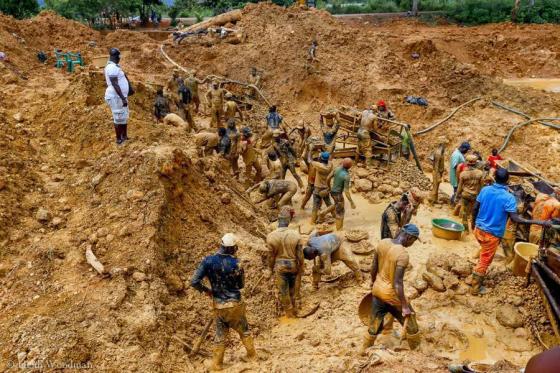Liberia: Inspection of All Class ‘C’ Miners Begins

Illicit mining in Liberia Illicit mining is causing the government to lose millions of United States dollars.
The Inspector-General of the Ministry of Mines and Energy, Obediah Joshua Arku, has embarked on a massive inspection exercise of all Class ‘C’ miners who fall in the Artisanal Small Scale (ASM) sub-sector of mining minerals in Liberia.
According to a press release from the Ministry of Mines and Energy, Arku’s inspection tour is taking place in the southeastern region of the country, a region that seems to be a trouble spot in terms of small-scale mining.
Leading a strong team of mineral Inspectors, including administrator Prince Mambu, the Mines and Energy Inspector-General began his work on November 9. Sites were visited and inspected in Rivercess County.
As the work continues, the Mines and Energy Inspector-General and delegation are now crossing over to Sinoe County and will reach out to all other southeastern counties including Grand Kru, Rivergee, Maryland, and Grand Gedeh. Arku is basically checking on and authenticating the validity of licenses (Class ‘C’ & ‘B’).
Class ‘C’ is set aside only for Librarians, but abuses have been observed in that license category, while Class ‘B’ license holders are semi-industrial miners allowed to use earth-moving equipment.
He is ensuring that all those involved with illegal and illicit activities at mining sites or claims, are reported to the central administration of the Ministry of Mines and Energy, for prosecution by the Government of Liberia, as a means of weeding such unscrupulous individuals out of the system.
Arku is responsible for enforcing the moratorium placed on the use of dredges for mining purposes by the Minister of Mines and Energy, Gesler E. Murray.
The Minister of Mines and Energy also placed a ban on the use of mercury, a dangerous insoluble substance small-scale miners illegally use on their dredges, apply the same to the process of recovering gold, which they later spill into rivers on which they carry out their illicit mining, thus polluting the water bodies local community dwellers use for drinking water, preparation of food and laundry, etc.
